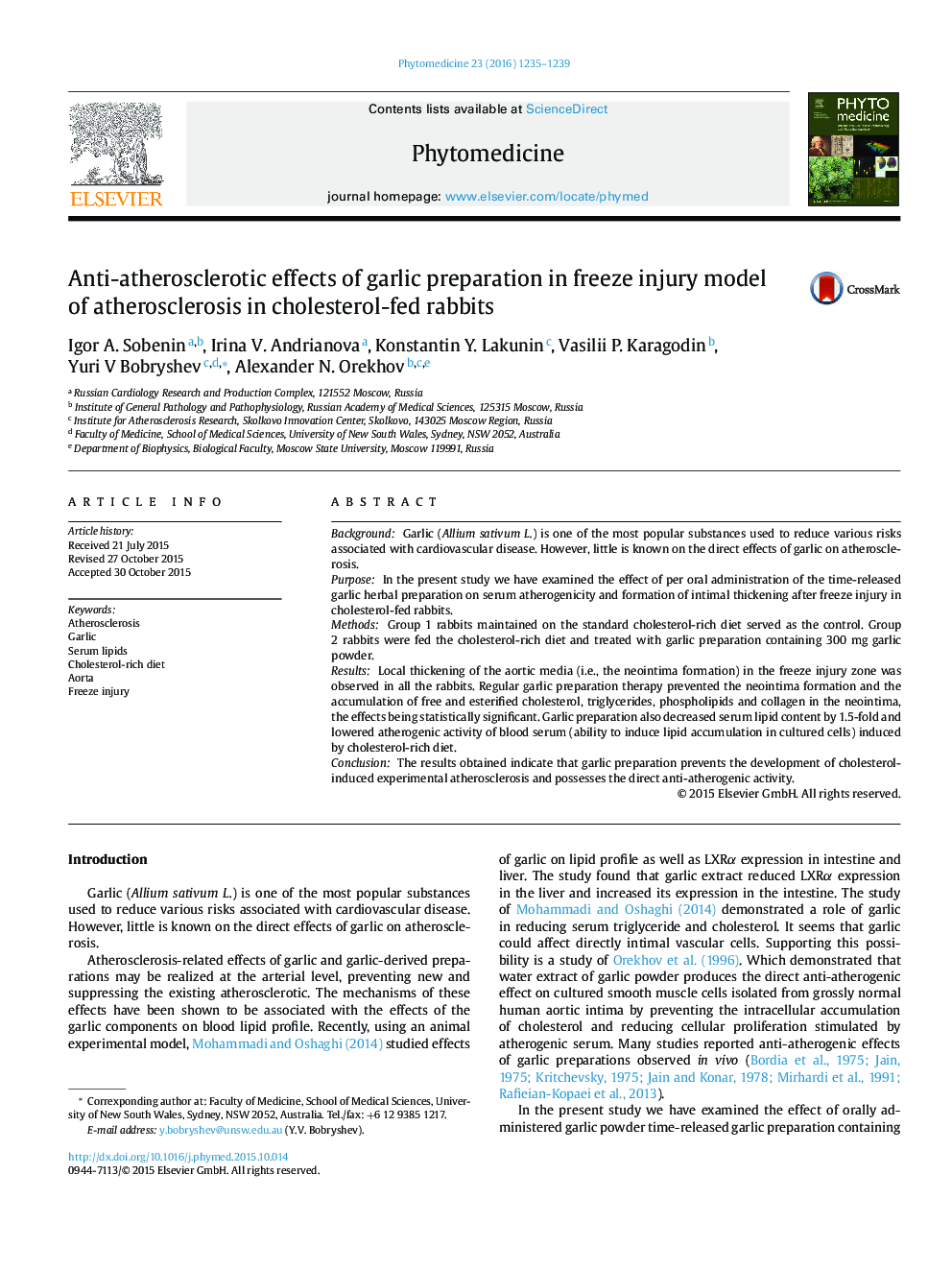| Article ID | Journal | Published Year | Pages | File Type |
|---|---|---|---|---|
| 2496207 | Phytomedicine | 2016 | 5 Pages |
BackgroundGarlic (Allium sativum L.) is one of the most popular substances used to reduce various risks associated with cardiovascular disease. However, little is known on the direct effects of garlic on atherosclerosis.PurposeIn the present study we have examined the effect of per oral administration of the time-released garlic herbal preparation on serum atherogenicity and formation of intimal thickening after freeze injury in cholesterol-fed rabbits.MethodsGroup 1 rabbits maintained on the standard cholesterol-rich diet served as the control. Group 2 rabbits were fed the cholesterol-rich diet and treated with garlic preparation containing 300 mg garlic powder.ResultsLocal thickening of the aortic media (i.e., the neointima formation) in the freeze injury zone was observed in all the rabbits. Regular garlic preparation therapy prevented the neointima formation and the accumulation of free and esterified cholesterol, triglycerides, phospholipids and collagen in the neointima, the effects being statistically significant. Garlic preparation also decreased serum lipid content by 1.5-fold and lowered atherogenic activity of blood serum (ability to induce lipid accumulation in cultured cells) induced by cholesterol-rich diet.ConclusionThe results obtained indicate that garlic preparation prevents the development of cholesterol-induced experimental atherosclerosis and possesses the direct anti-atherogenic activity.
